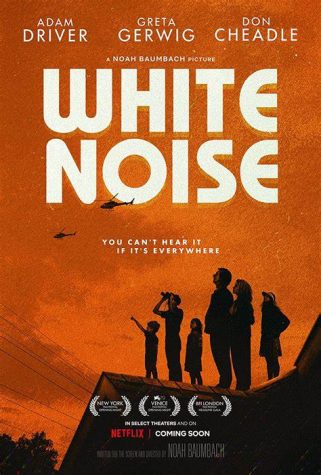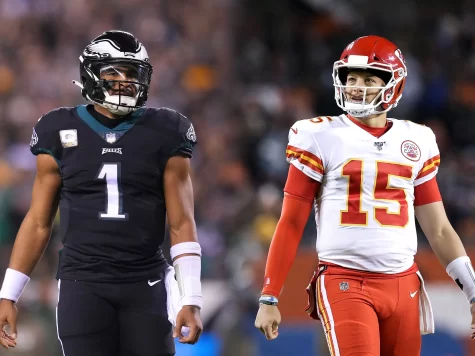Is Amazon getting too big?
March 1, 2019
 “Just order it online,” is a common thing to say to someone who cannot find something they are looking for, or if they are too lazy to go get it themselves. Thanks to corporate tycoon Jeff Bezos and his wildly successful company, Amazon, your groceries, toilet paper, a headband with mullet hair attached to it, or almost any other product imaginable can be ordered with one click and arrive at your doorstep in two days. If you felt so inclined, you could get all the things you could possibly need without ever leaving the confines of your house. You would not even have to use a computer or even be literate for that matter because Amazon has got you covered. Their line of smart speakers will listen to all the things you need and order them for you so you won’t have to waste your time learning how to read.
“Just order it online,” is a common thing to say to someone who cannot find something they are looking for, or if they are too lazy to go get it themselves. Thanks to corporate tycoon Jeff Bezos and his wildly successful company, Amazon, your groceries, toilet paper, a headband with mullet hair attached to it, or almost any other product imaginable can be ordered with one click and arrive at your doorstep in two days. If you felt so inclined, you could get all the things you could possibly need without ever leaving the confines of your house. You would not even have to use a computer or even be literate for that matter because Amazon has got you covered. Their line of smart speakers will listen to all the things you need and order them for you so you won’t have to waste your time learning how to read.
Although Amazon is ultimately built and maintained upon consumer interest, their growing omnipresence online begs the question: Is Amazon hurting free enterprise more than it is contributing?
In the seven years after it was founded, Amazon had yet to break even, spending millions on expanding its presence among U.S. consumers which continually failed because the emergence of the World Wide Web was not yet relevant to e-commerce. Amazon’s beginnings were a running joke on Wall Street. They watched from the sidelines at Bezos’s failed attempts at building a house of cards in a room full of fans, no one at the time thought that Bezos would soon create the largest online retail infrastructure to date.
Amazon is no longer an online retailer. It is an incredibly complex, global e-commerce machine that provides a “one stop shop” for the convenience of the average consumer. “The everything store,” the title of a book documenting the rise of Amazon written by Brad Stone gives Amazon the perfect nickname that continually becomes more literal as it widens its market base.
Alongside its traditional online retail store, it is a marketing platform, a delivery and logistics network, a payment service, a credit lender, an auction house, a book publisher, a movie and TV show producer, a fashion designer, a hardware manufacturer, a public cloud computing platform, and a perfect outlet for buying things you need like a polaroid camera so you can be more aesthetic.
Amazon also has a pristine sense of smell. It tracks down the pungent stench of failing business, lifts its virtual leg, and marks its new territory. After years of struggling to stay in business, Amazon bought out Whole Foods for 13.8 billion in August of 2017, and has done the same to Zappos,Twitch Labs, IMDb and some other well-known companies. Bazos also purchased the failing Washington Post for his massive, slobbering, territorial hound to release its stream, staining each folded page with its prosperous touch, in hopes of reviving a dying industry.
Amazon’s expansion through extensive re-investment over dollar per sale has placed it at the dead center of the global retail market, now providing an almost essential infrastructure for many businesses that depend on it, including their own competition. Unfortunately, current antitrust laws regarding fair competition in our free enterprise market do not account for large infrastructure that relies on predatory pricing and intensive re-investment for growth. At this rate, Amazon may start investing in space exploration because our puny world will soon have nothing to offer such a corporate giant.
Will Amazon grow to the point in which they control all of Europe, northern Africa and the whole Mediterranean Sea? Probably not but Rome was not built in a day. In light of Sears bankruptcy announcement in October of last year, Amazon CEO and founder Jeff Bezos expressed his thoughts on the future of his company.
“Amazon is not too big to fail…In fact, I predict one day Amazon will fail. Amazon will go bankrupt,” Bezos said.
Photo provided by Creative Commons












